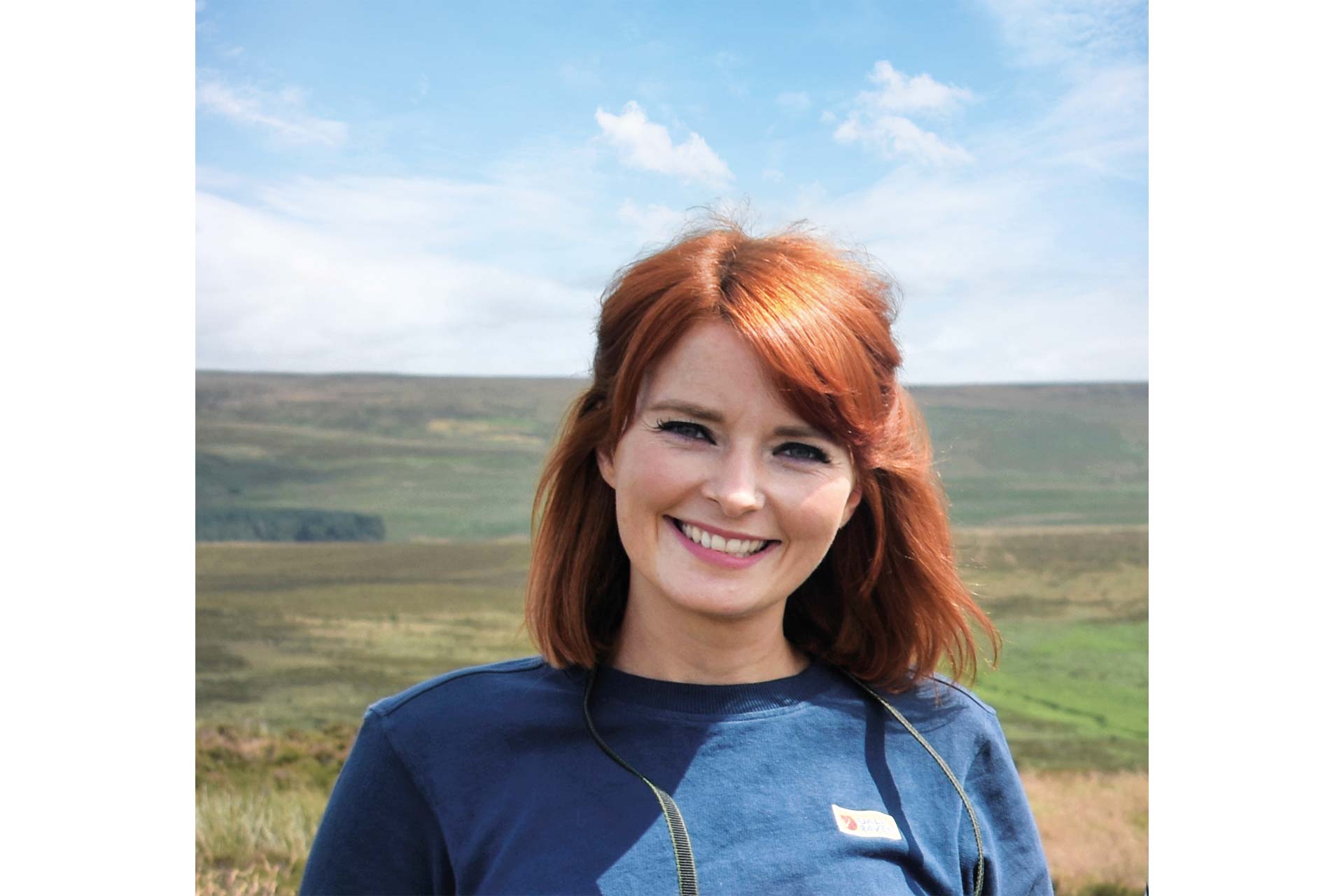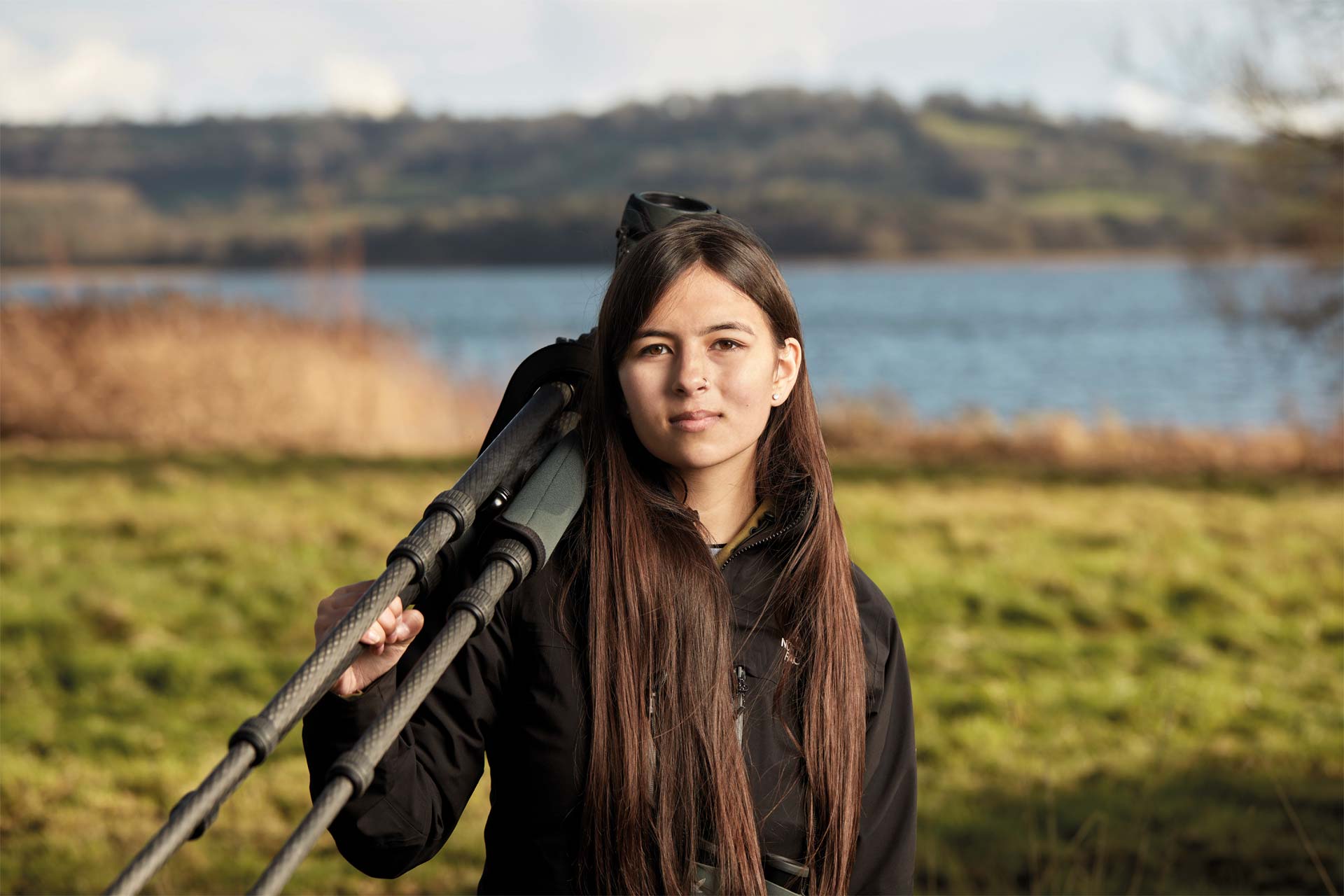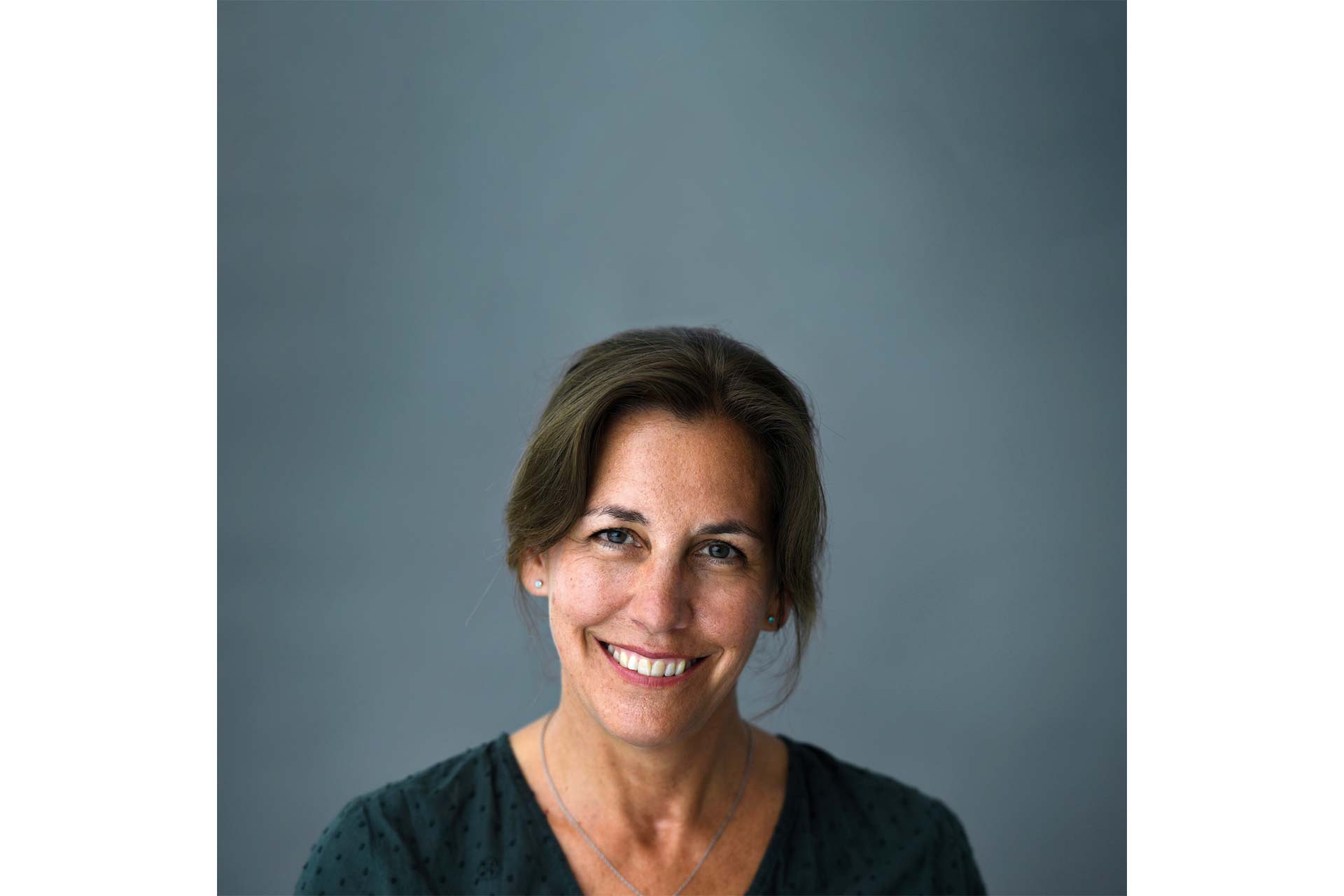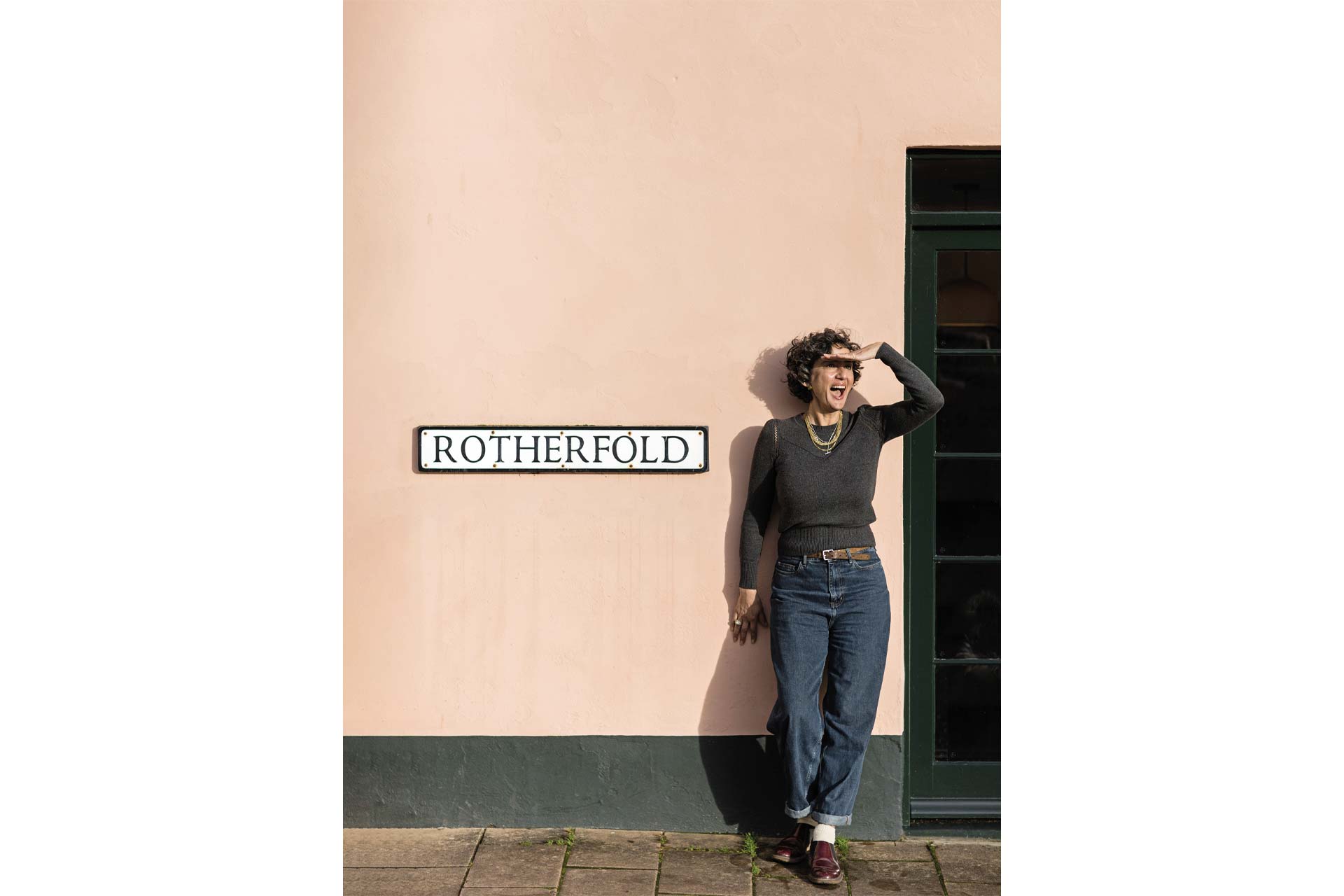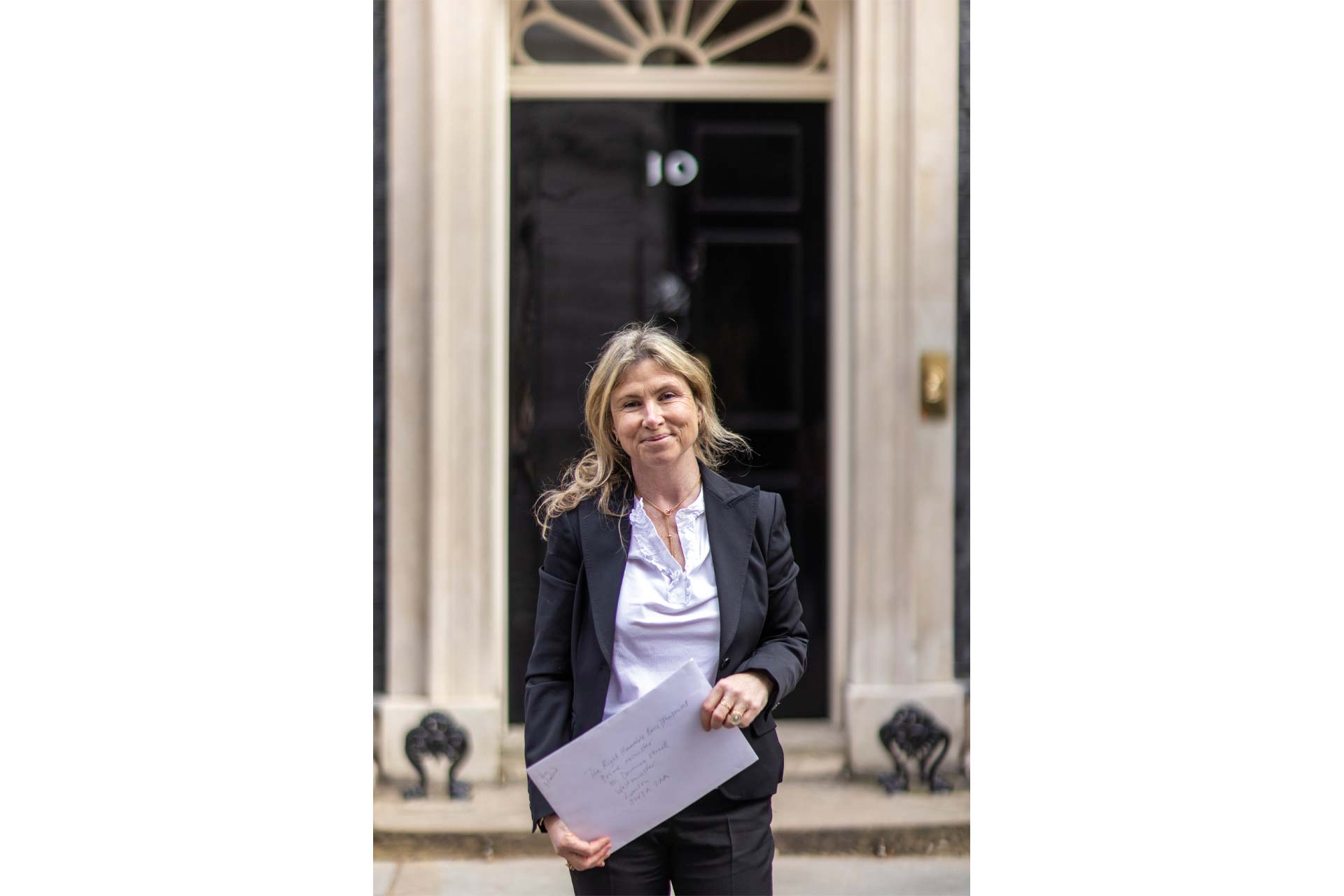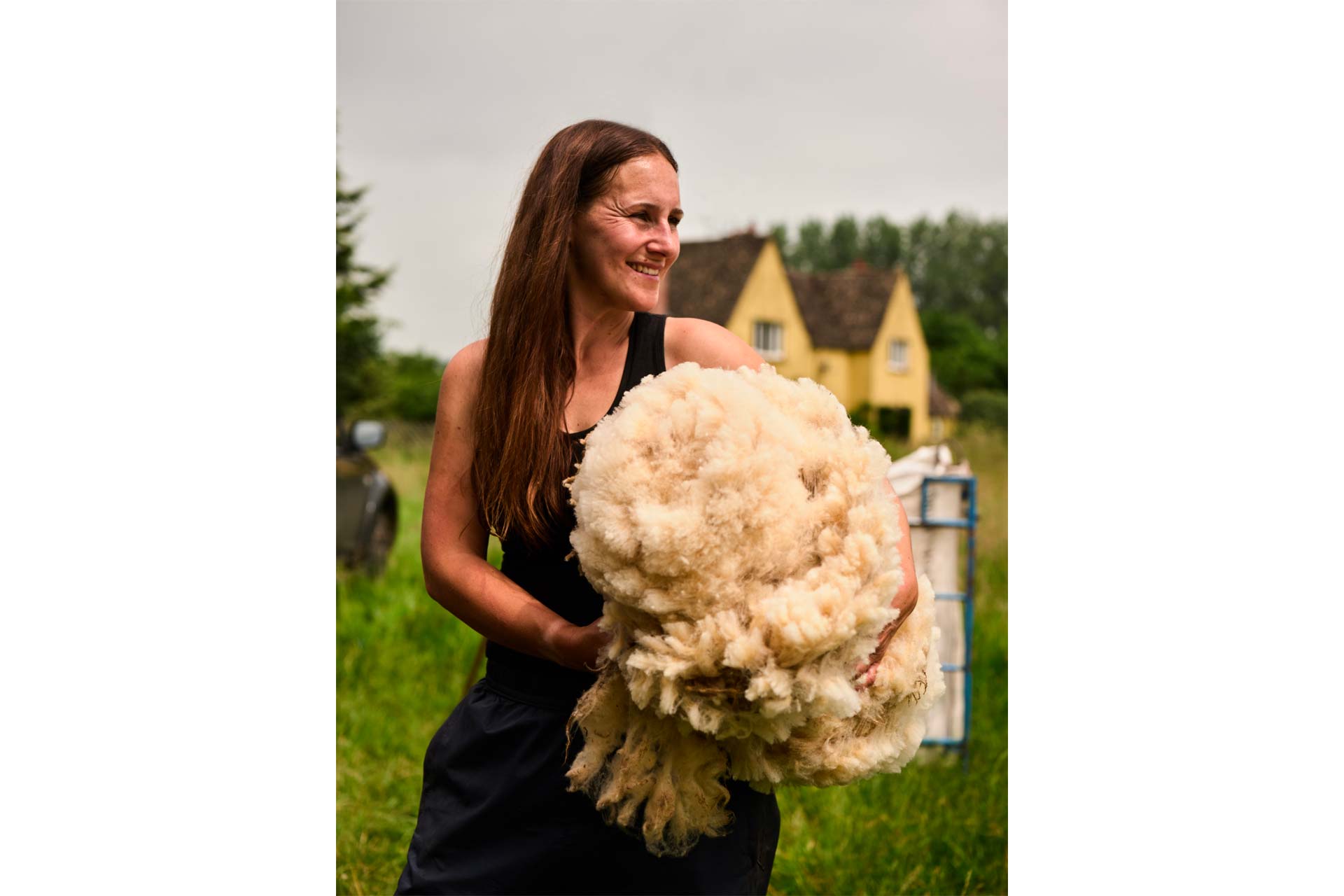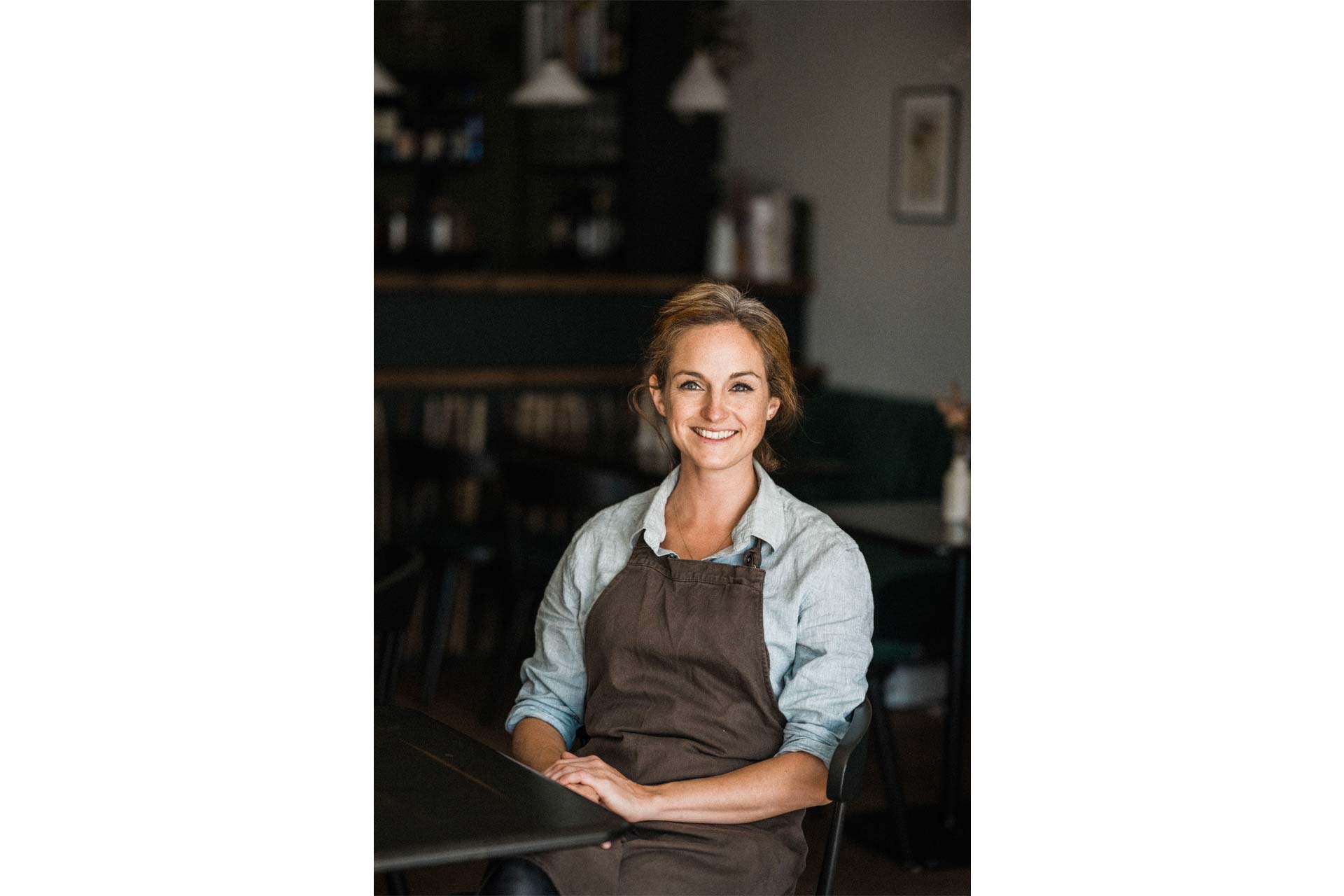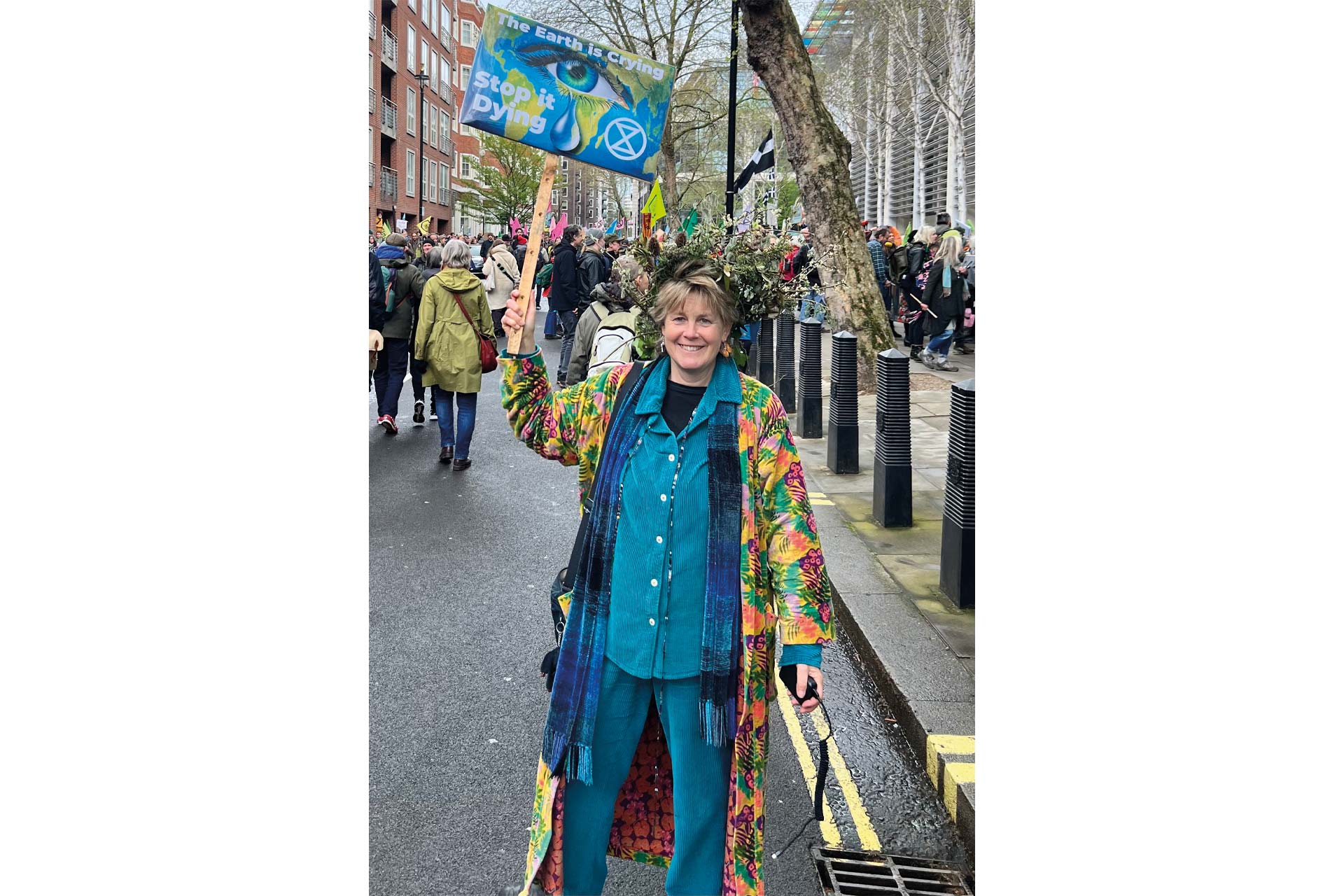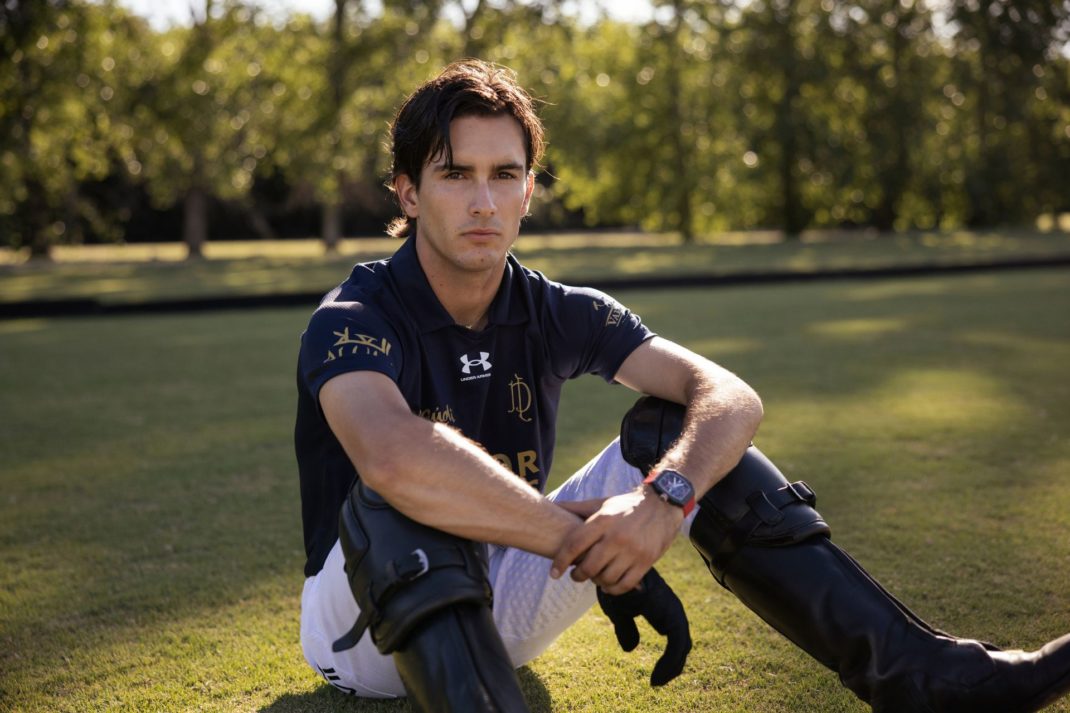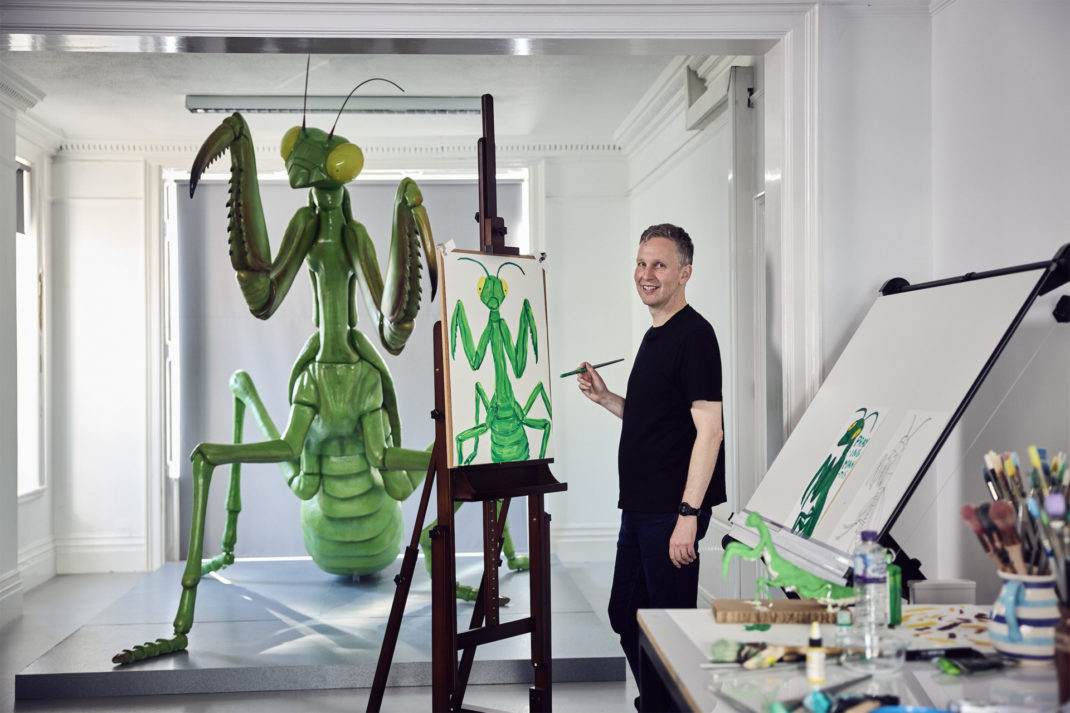Meet The Women Fighting For Britain’s Green Future
By
2 years ago
Britain's Wild Women

Britain’s women are not only calling for a better, greener future, but are getting on with the job. Amy Wakeham meets the female activists, changemakers and leaders shaping the future of the country – and the planet.
From Emily Williamson and Eliza Phillips, the pioneering 19th-century founders of the RSPB, to scientist-activists like Jane Goodall, British women have led and shaped the environmental and conservation movements from its very beginning. Today, names like Isabella Tree, Mandy Lieu and Arizona Muse regularly make headlines with their work across wilding and regeneration. But they’re just a handful of the many passionate women pushing the planet-first message through their work across the UK, and shaping a better, brighter and more nature-filled future for this country. Here’s a few of the inspirational women working at the forefront of the UK’s green movement.
Meet Britain’s Female Activists, Changemakers & Wild Women
The Community Champion
Jenny Barlow
‘The wonders of the natural world have always been something that have really inspired me, and how we’ve damaged it has been a source of real sadness,’ explains Jenny, Estate Manager at the Tarras Valley Nature Reserve in Langholm, Scotland. ‘But also, for me, a massive motivation to get involved and change things.’ It’s a fascinating story of community action. In 2019, 2,000 hectares of the rugged, windswept Tarras Valley in Scotland went up for sale, and the local town of Langholm immediately saw the opportunity to rewild and regenerate the former grouse moor. Jenny was taken on board as Estate Manager to oversee the nature recovery work – current projects include restoring the peatlands, planting trees and reconnecting the local people with the land. ‘We know it is a forever project,’ explains Jenny. ‘It’s all about looking to the future, creating a really rich legacy for future generations and the community around here. It’s not just the nature side and restoring damaged habitats, it’s laying the foundations for all the children that are growing up here so that they can benefit from having such an amazing asset on their doorstep.’ langholminitiative.org.uk
The Activist
Mya-Rose Craig
Only 21 years old and still at university, Mya-Rose is already a prominent and influential ornithologist and environmentalist. In 2022, she spoke on a panel at COP26 alongside Emma Watson, Greta Thunberg and Malala Yousafzai, cementing her status as one of the world’s most influential young activists. ‘I feel like I’m from a generation that’s always been very hyper aware of all the different environmental issues going on in the world,’ she says. ‘For me, that love for the planet, and for nature, transformed into this feeling where, if you really care about those things, you also should be trying to do a bit to go out and save them.’ She gets frustrated, because ‘the issues that we’re facing aren’t unsolved mysteries, but rather things where we just don’t have the political will to get the change that we need.’ She continues: ‘I think it’s important to emphasise that this is a very systemic thing. In terms of things that people can do [on an individual level], a big one is maybe switching to a bank that isn’t investing your money in fossil fuels.’ Birdgirl is out in paperback on 5 October. birdgirluk.com
The CEO
Clare Brook
As CEO of Blue Marine Foundation, Clare Brook heads up an organisation that aims to protect and restore life in the oceans. Previously, she spent 24 years in environmental finance at Jupiter, Henderson and Aviva. ‘The change that Blue Marine has helped to catalyse has been absolutely thrilling,’ she says. Blue Marine is aiming to protect 30 percent of the world’s oceans by 2030, and so far it has helped conserve over four million sq/km of sea, including raising a fund to support a huge no-take reserve around Ascension Island; overseeing the first ever marine protected area in the Caspian Sea; and securing a network of protected sites in the Maldives. In the UK, Blue Marine is actively restoring nature in the Solent Seascape Project, a whole-ecosystem regeneration project that aims to restore saltmarsh, seagrass, oyster beds and ten seabird nesting sites. For Clare, the future of the planet depends on the way we value nature: ‘If we could not only bring millions to the problem, but billions, then we could completely change the way the planet is functioning, for the better of nature and, of course, human civilisation.’ Clare first got a taste for campaigning when she joined Oxford Against Apartheid while at university in the 1980s. Then, ten years later, she went to see Nelson Mandela speak in Trafalgar Square. ‘It gave me the sense that it is possible to bring about positive change,’ she says. ‘Now we all worry constantly about the fate of the oceans and climate change. But all any of us can do is spend each day doing as much as we possibly can to pull us back from the brink.’ Sign Blue Marine’s petition to end deep sea mining at bluemarinefoundation.com
The Publican
Geetie Singh-Watson MBE
Brought up in a commune in the Midlands, Geetie has the environment in her blood. ‘As a child, environmentalism was really part of my narrative from the youngest age,’ she says. She started the award-winning organic pub, the Duke of Cambridge, in 1998, when few people understood what the term meant – it ended up getting her an MBE. She then met Guy Singh-Watson, the founder of Riverford Organic, and moved to Totnes, Devon, where she transformed The Bull Inn into an ‘organic, radical and ethical pub’. She’s excited about starting a new ‘ethical fish and chip shop’ called The Albatross, with a ‘limited fish supply and full traceability’ and, when sustainable fish can’t be sourced, ‘lots of vegetables, lots of deep fried artichokes, as you can’t have fish all the time. We’re trying to demonstrate a different way.’ Vocal about pushing for change, Geetie’s one piece of advice is to, ‘Get politicised and challenge your MP. Because it’s not about us, we need to stop micro-shaming ourselves. It’s all down to legislation, it’s all down to the government. They have the power to change the legislation, but they don’t do it. So get angry, now and fast, and get active.’ bullinntotnes.co.uk
The Campaigner
Anabel Kindersley
If there is one brand that has a legacy of flying the flag for regenerative thinking, it has to be Neal’s Yard Remedies. One of the first beauty brands to be certified organic by the Soil Association back in 1991, today it is helmed by Anabel Kindersley, whose family took it over in 2006. It was also named the first carbon neutral high street retailer back in 2008. Regenerative farming ‘has always been part of who we are as a family, and it continues to be the lifeblood of what we believe,’ explains Anabel, who has led influential campaigns to protect nature. ‘Over ten years ago, we decided that it was really not okay for this toxic pesticide neonicotinoid to be used in farming, because of the impact on bees.’ To raise awareness, Neal’s Yard launched its Bee Lovely hand cream; campaigns with Friends of the Earth followed, and eventually in 2017 it was banned. Last year the government quietly lifted the ban, meaning Anabel is back on the campaign trail: so far, she’s got 103 businesses on board, and a meeting with Defra booked in. She does admit frustration, though, that the dial is so slow to change on environmental issues, but says: ‘I’m quite a pragmatic person, I think it’s really healthy to direct that frustration into action. We haven’t got long, let’s really act now.’nealsyardremedies.com
The Designer
Katie Allen
An allergic reaction to some clothes prompted Katie Allen to overhaul her wardrobe. ‘It was a bit of an epiphany,’ she says. ‘It made me completely look at what is in my clothes, and what is in the creams that I’m putting on my face and on my body.’ At the time her work as a rural-based graphic designer put her in touch with a lot of farm businesses, and she was ‘exposed to real farmers doing really good things with their own produce that they were growing on their farms’. A few years later, with experience on a Cornish organic smallholding under her belt, she bought her own flock of sheep. ‘All the farmers I was buying from said, “Oh, you’ll never do anything with the wool, it’s not worth anything – we bury ours, we burn ours.” And I decided that that’s crazy.’ Loopy Ewes is her knitwear label, made exclusively from the wool from her flock, which graze an organic farm in the Cotswolds and are farmed using regenerative principles. From raising the sheep to spinning the wool and dying the yarn, Katie does it all. She is leading the way in challenging the systems that prop up the fashion industry, and offering another path that is smaller, more personal and fully connected with nature. loopyewes.co.uk
The Wine-Maker
Susan Kinsey Jones

Whinyard Rocks shot for Toast by Marco Kesseler
‘I grew up within the M25, and had never lived in the countryside before,’ laughs Susan, as she recounts her and her husband’s decision to transform part of his family’s farm in Wales into a vineyard. ‘We knew we wanted to have a sustainable future for our family.’ In 2017 they planted 800 vines, commuting to their day jobs in London. Four years later, they got their first tiny crop of grapes and made 50 bottles of wine. Gradually, they found themselves pulled towards natural, low-intervention winemaking – previously Susan worked at online local grocer Farmdrop, so she was already familiar with the world of low-impact farming. ‘It’s just about trying to make good products and improve the planet at the same time,’ she says. ‘It’s really apparent that it’s a privilege to be custodians of this land, and regenerative principles seem to be the way it has to go… I think it’s going to be a lifelong process of trying to make this holistic ecosystem where everything relates to, enhances and reflects everything else at the farm.’ Six years on and Whinyard Rocks produces two wines, both fermented with indigenous wild yeast: a sparkling red and a lightly sparkling white. Tours and tastings are planned for the summer. whinyardrocks.com
The Chef
Harriet Mansell
Noma-protogée Harriet set up her restaurant Robin Wylde in Lyme Regis in 2020, after several years cheffing for the rich and famous on their superyachts. Her menu ‘showcases and explores wild edibles’, and is part-foraged, part-locally sourced and seasonal, featuring dishes such as a black mustard and wild winter greens taco, and courgette and squash flowers with basil and lovage sauce. ‘As a teenager, I became very, very fixated on flavour,’ says Harriet. ‘When I started to cook, I was drawn towards the idea of ingredients that weren’t available in supermarkets.’ With that, she says, comes a deep respect for nature and an observation of the world around you. On moving to Lyme Regis in 2019, Harriet’s mission became ‘to understand what grows where, the flora and fauna of the area, what time of year it grows, when it grows, how it changes with the seasons, but also with each year.’ Although the present iteration of Robin Wylde will close in October, Harriet plans for it to evolve into a series of events, and collaborations, and dinners in nature itself, in the short term, while she finds a permanent future home for the restaurant. Behind the scenes, she’s working on a podcast, ‘which is about celebrating people who are working closely with nature’, and working with a videographer on capturing stories of her work. robinwylde.com
The Pioneer
Julia Hailes
The catalyst for Julia’s lifetime’s work was ‘seeing the rainforests being cut down’ when she travelled the world in her twenties. Her 1988 book, The Green Consumer, has sold over one million copies and first introduced shoppers to the idea that their purchasing habits impacted the environment. ‘The thing that we started was the power of market forces for environmental change,’ she explains. When researching the book, she rang up supermarkets and ‘they had no idea what I was talking about – it wasn’t on their radar at all’. However, within a year, when she started working on a follow-up publication that focused particularly on supermarkets, ‘every single one of them had gotten an environmental advisor. It was a really exciting period of change’. She finds it sad, though, that almost 35 years later things have only gotten worse. ‘Sustainability is no longer the goal, we have got to start regenerating and putting stuff back.’ Now she’s passionate about rewilding, and runs an annual Wilding Weekend, as well as supporting Operation Future Hope, which provides environmental education for schools. operationfuturehope.org

